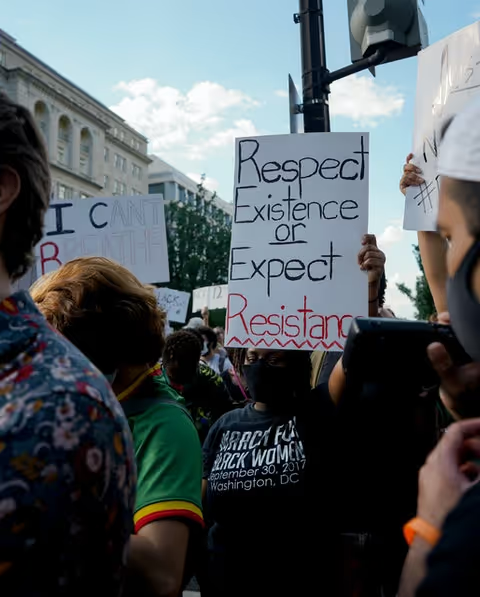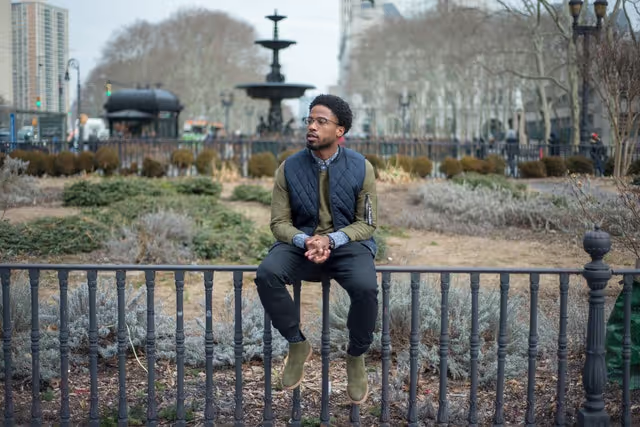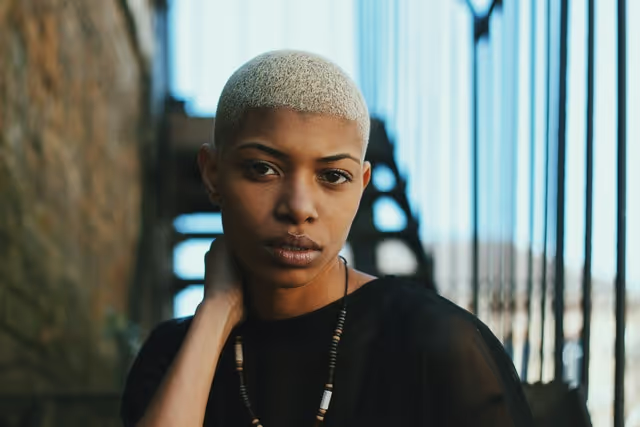It's Okay To Not Be "Okay"
Here We Are, Still

Has it even been a year, a full twelve months, since the nation and the world bore witness to the nine-plus-minute murder of George Floyd? Held captive by the COVID-19 induced quarantine, with no sports to watch as a distraction many came to grips with what is an everyday reality for Black people: there is an absence of basic human lack of regard for Black lives by members of law enforcement across the nation. With the fuel of systemic racism perpetually stoked by almost incredulous unfounded fears, everything from traffic stops to being asleep in your own home, falling asleep in a car on a fast-food drive-thru line, to selling loose cigarettes on a street corner, have inexplicably escalated to people being killed. Untrained, unarmed civilians are expected to behave with the utmost respect, self-control and restraint while combating the terror tearing through them that they may be killed. Meanwhile, those who are professionally trained to protect and de-escalate situations and have actually proven they can after several mass shootings and other atrocities are committed by non-BIPOCs, seem justifiably incapable when a suspect is a person of color. Whether you comply, or don’t comply. Whether you're unarmed, a preteen, or a card-carrying member of the NRA, there is always a reason, no matter how baffling, as to why the use of deadly force is required. As Black people, seeing and hearing about Black bodies being broken and destroyed on the regular is traumatic. Unfortunately, this trauma is only amplified by social media when attempting to grieve collectively, the imagery of Black bodies being broken, battered, and destroyed is shown over and over again, subconsciously and quite obviously adding to the pain, sorrow, anger, and fear. Knowing, from numerous previous examples, that no justice (with a few recent exceptions a.k.a. Derek Chauvin) will be served due to these injustices can easily lead someone down the path of hopelessness.
Don’t believe the lie that you have to be tough when you’re experiencing mental and emotional trauma and pain.

Be In Your Feelings, It’s Human
During a two-week period, we’ve been exposed to the killing of unarmed, 20-year-old Daunte Wright and the arrest of uniformed Army second lieutenant Caron Nazario, and most recently the killing of Ma'Khia Bryant, all while the trial of Derek Chauvin, the police officer charged in the death of George Floyd, dragged on for weeks. Add to this, the sudden losses of hip hop icons DMX, who often publicly battled his demons, and Black Rob. In two words, April has been a lot.
If you feel:
- Sad
- Angry
- Grief-stricken
- Helpless
- Afraid
- Anxious
- Lethargic to the point that you'd rather do nothing
or any combination of these emotions, please know that it is okay. You are not alone. Trauma is real and shows up whichever way it does. If you are having an internal debate with yourself that you shouldn’t be feeling a certain type of way or that you need to “man up” to get on with living, well, that’s what's not okay. When you deny yourself the opportunity to be your authentic self you are passing up the opportunity to learn and potentially grow and heal from your traumas. You are denying yourself the opportunity to live life as your best self and when this happens everyone in your universe suffers — your clients, the people you love, the people who love you, and the people who you don’t know who are watching you because to them, you’re an inspiration.

Take Care of YOU Because You Deserve It
You aren’t good to anyone if you aren’t good to yourself, first! Don’t believe the lie that you have to be tough when you’re experiencing mental and emotional trauma and pain. No doubt police brutality and Black lives mattering has and continues to be an ongoing conversation in your shop and with your clients. The barbershop is safe-space for our conversations, making it ground zero for the culture. May is Mental Health Awareness Month, should you find yourself needing a little more than what these conversations provide, do yourself a favor and seek the help of a trained professional. If you currently aren’t seeing a therapist and don’t know where to start, the following is a list of resources that allow you the flexibility to discreetly access help without disrupting your appointments.
Mental Health and Wellness Resources:
- Therapy for Black Men
- Therapy for Black Girls
- Henry Health
- BetterHelp
- Cerebral
- Talkspace
- National Suicide Prevention Lifeline: 800-273-8255



